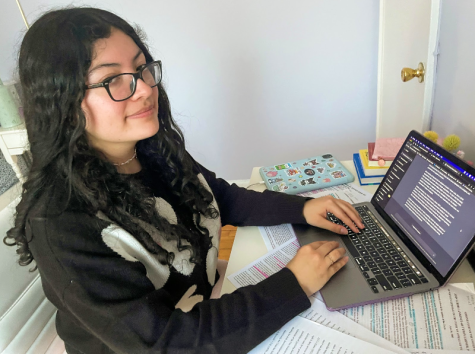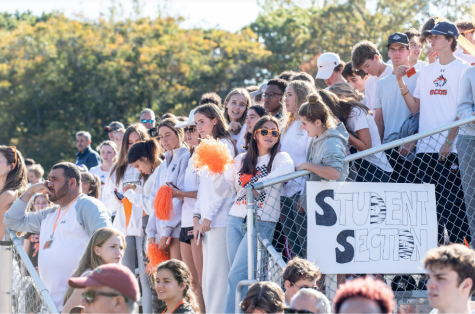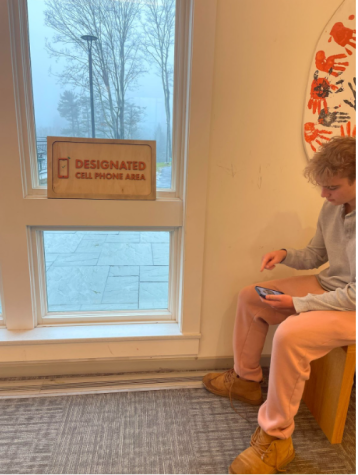Procrastination Advice Column
Everybody does it–but what can students do to stay focused?
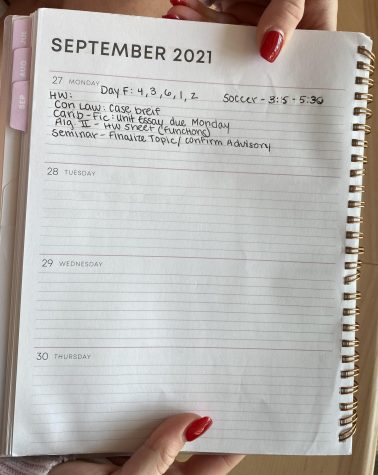
A student’s planner.
Photo credit: Kim, 11th grade
Procrastination is something every student combats at one point or another; it can be detrimental to their mental and physical health, but what causes these habits, and how exactly does it affect a student’s life?
Reid, a 9th grader, says, “I procrastinate when I just don’t want to do my assignments.”
The increased stress caused by procrastination can lead to reduced well-being, worse academic performance, and strained relationships. Reduced well-being can cause more frequent negative emotions such as guilt or shame. It can also manifest itself in the development or worsening of mental health conditions such as depression and insomnia. In an academic setting, procrastination can lead to lower grades and exam scores, course failure, and even course withdrawal.
On the other hand, Jolie, an 11th grader, commented, “Whether it’s trying to get my drivers license or anything… I always feel like I can do it faster than I actually can.” Further noting, “I feel like I procrastinate because I want free time. Like I want my own downtime and I feel like if I don’t procrastinate I don’t get downtime for myself.”
There are many different reasons for procrastination and there are just as many —if not more— methods to prevent it. Students were asked what techniques and practices they would recommend to other students to help them stop procrastinating. Here are six tips to keep in mind.
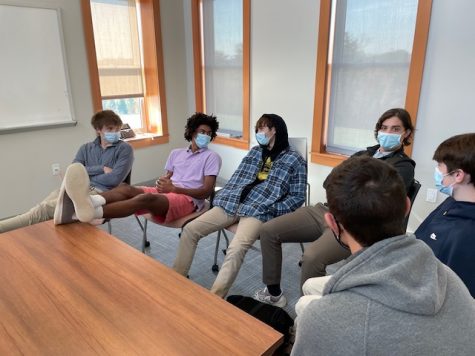
A group of 11th grade boys during study hall.
Photo credit: Teddy, 11th grade
1) Limit Distractions
For Izzy, 11th grade, limiting distractions (i.e. phones) helps alleviate the temptation of procrastinating.
She suggests, “Get yourself in the zone. Put your phone where it’s out of reach and put some music on.” Izzy also recommends, “shut everything out– any distractions” in order to keep focused.
Mr. Wiley says, “It’s really easy to get distracted and procrastinate if you’re constantly surrounded by other people, so try to find somewhere where no one else is.”
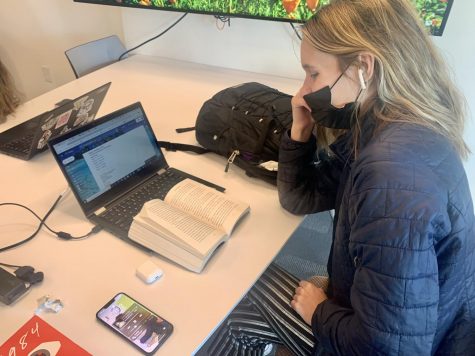
Kylie, 11th grade, listening to music to become more focused.
Photo credit: Carolina, 11th grade
2) Create a good workplace environment
Mrs. Waller says, “I like a setup. So I’ll like, you know, turn my fire on. I’ll make sure the area I’m working in is clean and cozy… I just make sure it’s aesthetically pleasing and then I just hunker down.”
In a study using fMRI scans along with other approaches, Princeton University’s Neuroscience Institute have shown that the human brain craves order and that visual reminders of disorganization drain cognitive resources– reducing our focusing abilities. Being in a quiet space also improves focus, lessening the possibility of procrastination.

9th graders created a space to work on their EOL.
Jackson, 9th grade
3) Split your work into intervals
While Mrs. Waller recommends putting away technology, Jolie recommends students use an app to help stay focused on their studies.
The app she uses is called Flora, an interval timer app. However, she notes, “I know there are other apps out there but that’s the one that I use.” The app allows her to set a time block for work and a shortened period she uses to take a break.
When faced with a large task (i.e. an essay or a long reading assignment), breaking the task into smaller, more manageable tasks can be extremely helpful. It reduces stress in the long term and can ultimately help with procrastination– when an individual is not overwhelmed by the work they have to do, they are more likely to complete the task at hand.
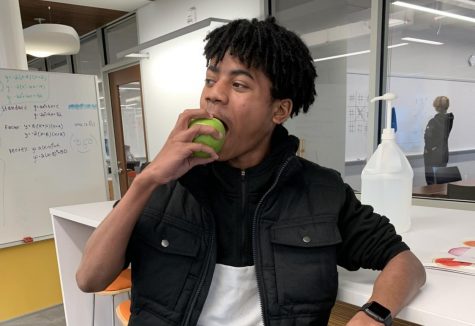
A student taking a snack break.
Photo credit: Carolina, 11th grade
4) Take breaks
Taking breaks, although seemingly counterproductive, can help prevent procrastination. It allows you to get your mind off of what you’re working on and unwind for a while– resetting yourself mentally for when you start studying or working again, lessening the chances of burnout. An Oregon State University study indicates that taking breaks can increase focus, reduce stress, and aid information retention.
Another way to think of these breaks is like a prize after a work period– like a point system. When Mrs. Waller structures her worktimes, she says, “I like a little reward system. Like you work straight for thirty minutes and then you get to get up and get an oreo or you get to like go and check your phone.”
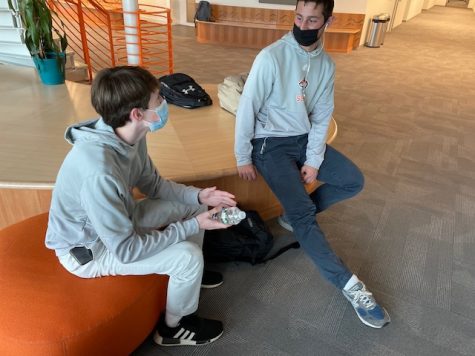
11th graders Roman and Jack taking a quick break.
Photo credit: Teddy, 11th grade
5) Make a plan
According to 1oth grader Sarah, “procrastinating is a hard thing to stop, so having a solid plan is one of the most helpful things to do.”
Although making a plan may be overwhelming at times, in the long run it allows for faster, higher quality work– preventing future cramming.
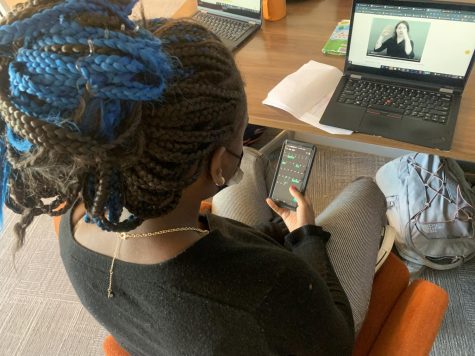
A student planning her week using a calendar app on her phone.
Photo credit: Jackson, 9th grade
6) Hold yourself accountable
Vaughn, a senior at GCDS, uses academic performance as motivation to prevent procrastination.. The reason for his determination to stay on top of his academics is out of the desire to do well in school. He says, “If I get a bad grade, it’s not going to look good [on college applications].”
As many high school students at GCDS experience various reasons for procrastination, finding strategies for dealing with it becomes vital in improving academic performance and health.


